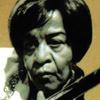Real Talk: Mary Lambert's Shockingly Honest Pop
Friday, Jan. 19 @ Caledonia Lounge

Mary Lambert
When Macklemore and Ryan Lewis' well-intentioned song about gay rights, "Same Love," dropped in 2012, it introduced a broad audience to the immense vocal talents of Mary Lambert. The popular song's lyrics evoke Lambert's discovery of self-love through accepting her lesbian identity. Such honesty became par for the course as Lambert used her heightened profile and personality as a self-professed "chronic oversharer" to teach fans necessary lessons about confronting their vulnerabilities and accepting perceived faults. She continues that mission into 2018, while plotting new ways to share her varied talents.
"When I started doing pop music, I knew I wanted to do pop music with subversive social messaging," Lambert says. "I was hearing all these pop songs where their heart was in the right place. Like, ‘Just love yourself and everything will be OK,’ you know? I thought, ‘That's great. That's really well-intentioned, but what about some real shit? How about really addressing these things instead of putting a bow on it and calling it self-care?’ The missing thing in all of those narratives was the lens wasn't turned on the artist or writer."
Before embracing her current role as a pop singer, Lambert explored how self-reflection connected performers and audiences through spoken word and poetry readings in her hometown of Seattle. Blending that style of self-expression with uptempo dance songs and piano-based confessionals on such releases as her 2017 EP Bold allowed her to craft something rare in this day and age: authentic pop songs. By opening herself up, she followed through on her goals, creating a positive and truthful alternative to feel-good fluff.
"That is exactly what I was hoping to achieve, especially after I signed to a record label and started releasing pop music," she says. "I felt like I was a secret agent, working in the pop industry as an undercover healer."
One benefit of the Macklemore connection is a very young audience, filled with pop fans reaching an age of awkward self-discovery. Through songs such as the internal-dialogue-driven "Lay Your Head Down," Lambert aims to make fans feel less alone in a turbulent world.
"A lot of my fans are going through shit," she says. "These messages to them, whether I'm talking about mental illness or body image or sexual assault, are issues that affect them in a very real way."
Although her pop aim is true, Lambert is already plotting a change in direction. "I feel like my pop chapter is coming to an end," she says. "I want to be creating and releasing music that's the most authentic I can possibly be, and sometimes that means releasing dark, sad music."
Lambert sees the music she's preparing for a future album as a means to better use her bachelor's degree in music composition from Seattle's Cornish College of the Arts.
"I haven't had a chance to show or work with [those skills],” she says. "This next album has more orchestral elements and a lot more spoken word. I’m talking sometimes very abrasively, sometimes very shockingly about trauma. And a lot of it is me and a piano. It's like going back to my roots."
As Lambert readies her new sound for public consumption, she's currently touring with just her guitarist, performing stripped-down versions of her pop material in intimate settings like the Caledonia Lounge. And whatever post-tour twists and turns Lambert throws her listeners, they can rest assured that she'll keep writing deeply personal, shockingly honest lyrics. After all, that's the only way an oversharer can write songs, make money and still sleep at night.
"Before 'Same Love,' I got asked to write a worship song for my church," she says. "For me, when I'm writing music, I feel a divine connection with God. For me, that's a really sacred process. I sat down to write this worship song. I wrote something and I felt awful about it, because it felt so contrived. There's a ‘South Park’ episode where they decide to start a Christian band, and they replace every use of the word 'baby' with 'Jesus.' They make a lot of money and they do really well, but they feel bad about it afterwards. That's kind of how I felt."
Calendar
-
Friday, January 19
Caledonia Lounge
Mary Lambert, Mal Blum
MARY LAMBERT Singer-songwriter, spoken word artist and multi-instrumentalist known for her feature on Macklemore's "Same Love." See Story on p. 12.
MAL BLUM Anti-folk singer-songwriter from New York.
Keywords
More by Bobby Moore
-

Mike and the Moonpies, Sunny South Blues Band
Tuesday, Sept. 10 @ The Foundry
-

Raelyn Nelson’s Comedic Country Is No Joke
Friday, May 10 @ Georgia Theatre Rooftop
-

Beverly 'Guitar' Watkins, Rick Fowler Band, Blue Roses, Michael Guthrie
Saturday, Apr. 27 @ The Foundry









comments